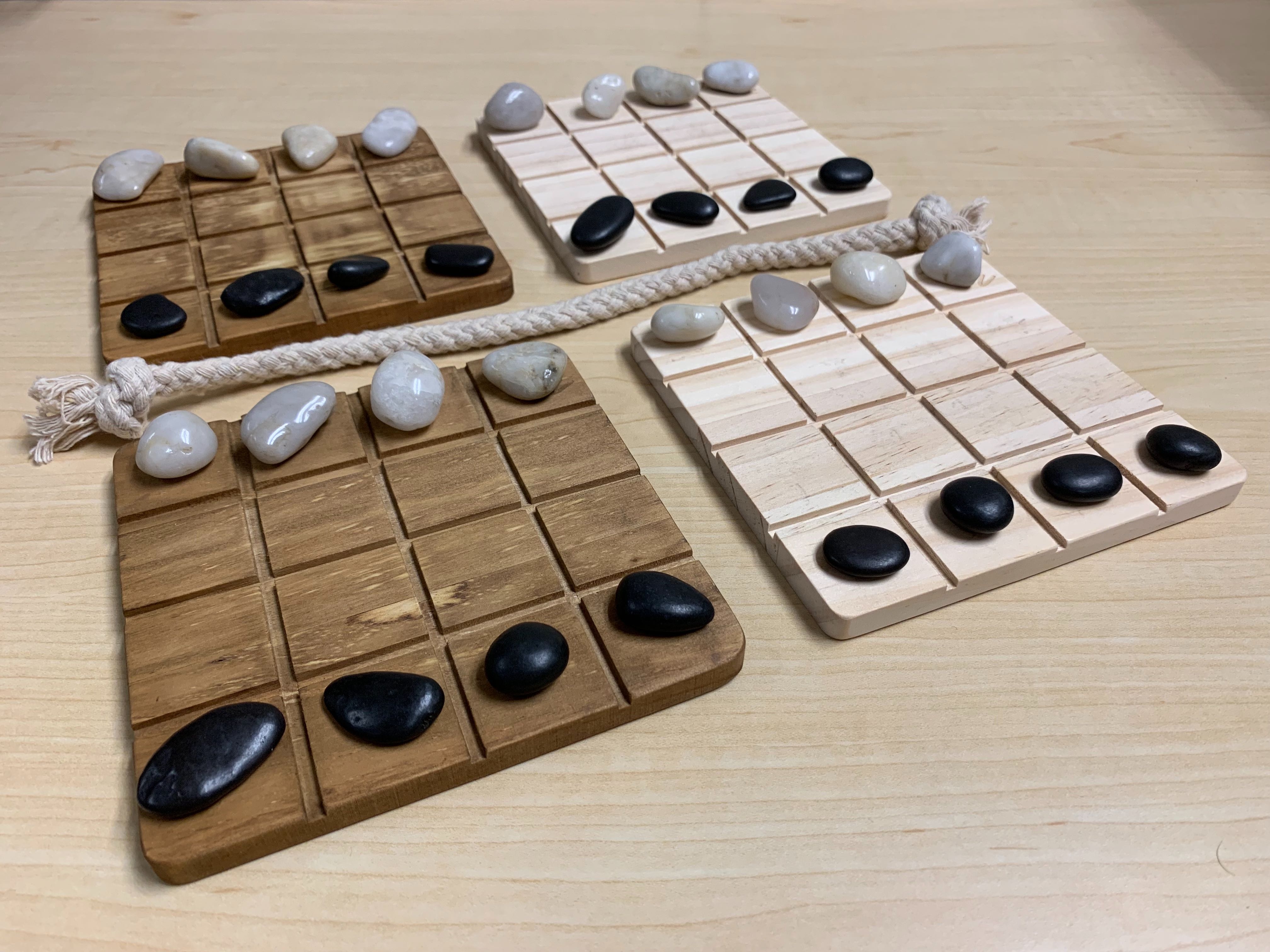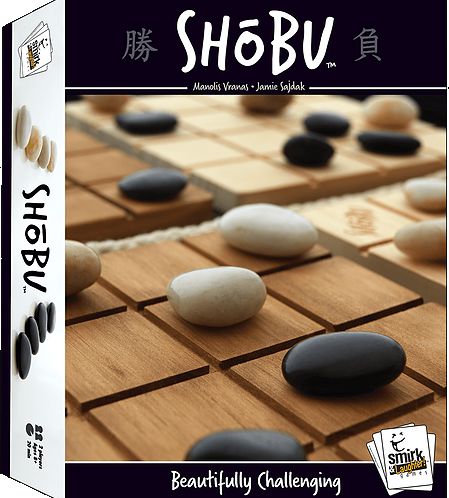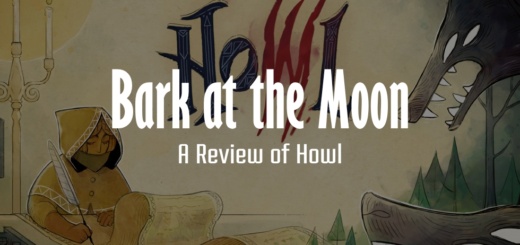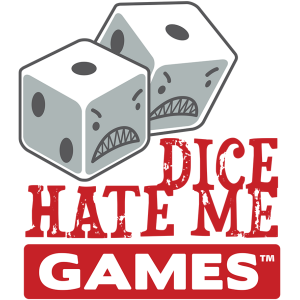This Game Rocks! – A Review of Shobu
Shobu is an odd combination of components: Four wooden boards, 32 stones, a rope, and a rules sheet. Is this an example of a simple game having complexity in play, or is it just random components thrown together?
At the core, Shobu is in the same space as Chess or Tak – A game for exactly two players where there is perfect information and no randomness. Perfect information means that each player can see every aspect of the game, so there are no facedown cards or hidden pieces of information. This is a pure strategy game, brain versus brain, to see who can out-maneuver and out-perform the other player.
The set up of Shobu is simple. Each player gets a light and a dark board in front of them, a rope across the middle of the play space, and four stones on their edge of each of the four boards. The end result of the setup looks like this:

On a player’s turn, they move one of their stones on either of the boards in front of them. This stone can move one or two spaces in a straight line and cannot interact with any other stones. Once this passive move is done, the same move is done again with one of their pieces on either of the boards of the other color as an aggressive move. This can push a single stone and may interact with other pieces. To win, a player must clear one of the four boards of their opponent’s stones.
Once you get past the simple components and the simple rules, there is a lot going on. Planning multiple moves ahead is crucial for both defending against your opponent’s moves and planning your own moves. Locking down a piece means you can’t use it for a passive move, restricting the options you have for aggressive moves. There’s an element to planning several moves ahead, but this can come with time and experience. Understanding that the passive move can also help you set up for another move in the future and chaining these moves together will help the game really show itself.

The game play is great, and this feels like an “old” game. It reminds me of Tak quite a bit, not in the rules, but in the general feeling. This has a classic, elegant feel to it that anyone can learn. That being said, this is not a game for everyone. If you are not a fan of strategic, no-luck kind of games, you likely won’t enjoy this one. If you’re a fan of goofy themes or luck factors in your games, you’re going to be left empty handed here. The components are atypical of most hobby games, and this game could easily be made with your own parts at home. Others already have, but this is a great way to try the game out to see if it’s a good fit for you. Personally, I really enjoy the game. There’s a charming aspect to the physical design and I think it’s a very eye-catching style. You can read more about the game on BoardGameGeek.
If you are wanting to check this game out, I happen to have an extra copy to give away!





